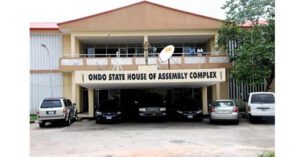
NDDC board takes off, Minister harps on forensic audit
The Minister of Niger-Delta Affairs, Chief Umana Okon Umana, has charged members of the Governing Board of the Niger Delta Development Commission (NDDC) to be faithful in the implementation of the recommendations of the report of the Commission’s Forensic Audit.
Umana gave the directive while inaugurating the new board of the Commission yesterday in Abuja, urging the board members to immediately hit the ground running.
The new board has as Chairman former aide to President Muhammadu Buhari, Mrs. Lauretta Onochie and Chief Dr. Samuel Ogbuku as Managing Director.
The Minister stressed the need for the board and the management to strictly adhere by the procurement Act, as well as the financial regulations to ensure prudence in the management of limited resources.
He said, “Every contract above the threshold of management is to be referred to the Ministerial Tenders Board of the Federal Executive Council. Any breach of contract approval limits will attract severe sanctions.”
Umana also charged the board to look into “allegations of irregular employment from 2019 and follow up on the ongoing personal audit in the Commission to make sure all cases of employment during the period under review were in accordance with extant rules and regulations of the service.”
Umana urged the board members to focus on the completion of ongoing projects and advised them to shun the lure of the “award of spurious and indiscriminate new contracts,” so as to help in repairing the negative public perception of the NDDC.
In his remarks, Secretary to the Government of the Federation, Mr. Boss Mustapha, noted that the inauguration of the new board would not have been possible without the collaboration of the National Assembly.
Mustapha, who was represented by a former Permanent Secretary, Mrs. Habiba Lawal, urged members of the new board to bring all their expertise to bear to transform the lives and environment of the region.
Also speaking, the Chairman of the board, Lauretta Onochie, appealed to Nigerians, especially people from the Niger Delta region, to give them the necessary support to deliver on their mandate.
She said,”We are going to do things differently so that the people of Niger Delta can benefit from what Nigeria has been investing in the region. In the past, many investments in the Niger Delta have found their way to Abuja, London, Dubai and elsewhere.”
Onochie added that part of the new board’s goal was to change the narratives from the current situation where youths sought for Special Assistants (SAs) jobs to being employers of labour.
She added that the Buhari administration was committed to youth development and would do everything possible to equip youths in the region with necessary skills to compete with their peers from other climes.
She said, “Since its establishment by the NDDC Act, the Commission has received a lot of flaks from all and sundry.
“Consequently, the board, in addition to all the guidelines issued by the Honourable Minister, will be looking to review the existing policies and guidelines to enable us to have a clear sight as we hit the ground running.
“We cannot continue working with failed templates and expect to get a different result.
“Apart from the physical development of our region, we will be paying extra attention to the empowerment of our teeming youth population, equipping them with requisite skills to enable them to catch up with their peers in other parts of Nigeria and elsewhere.”



